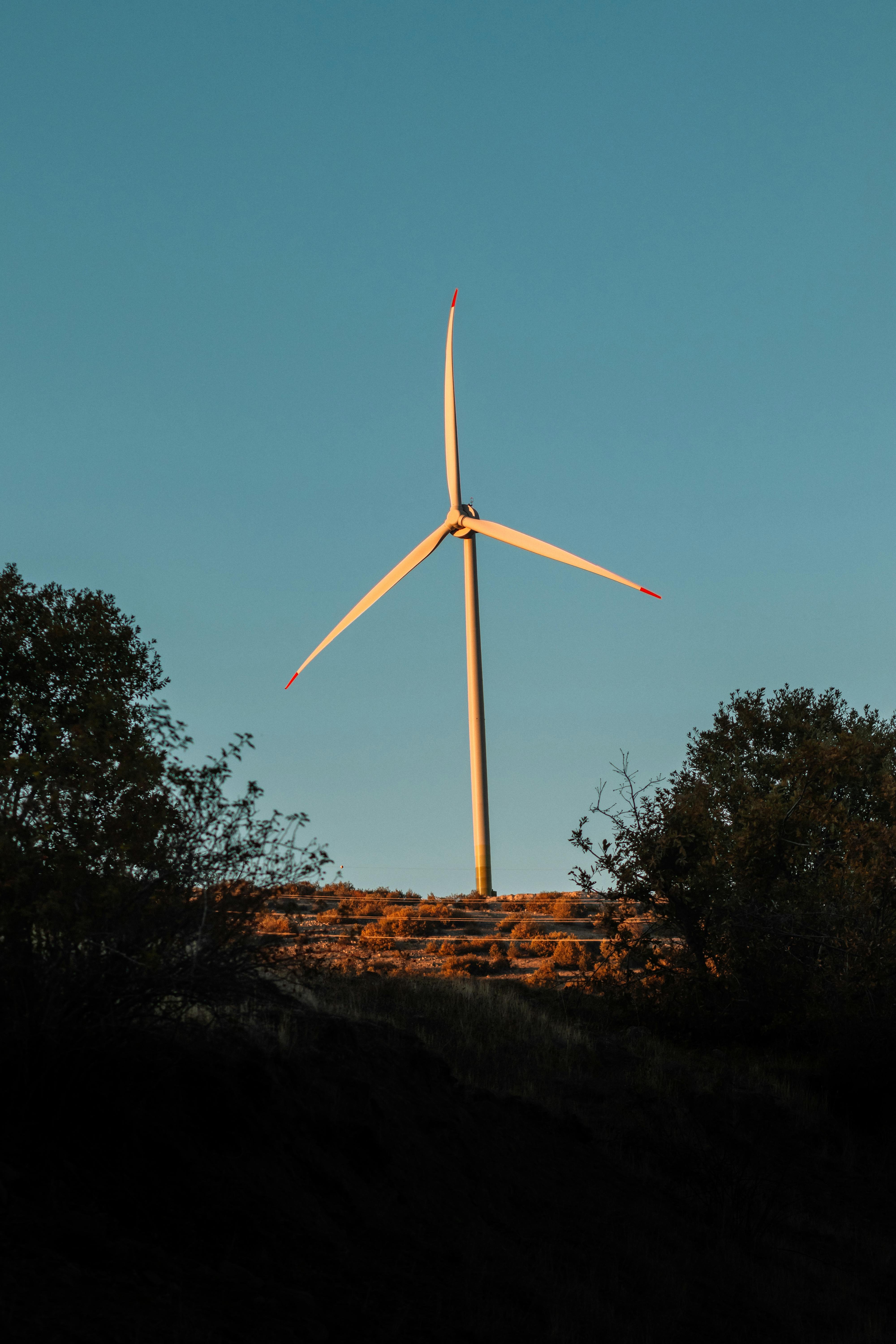There’s an intriguing world behind your everyday household appliances that goes unnoticed, yet it plays a critical role in the conservation of our environment and cost-efficiency. In the article, “Unveiling the Secrets: What Makes an Appliance Energy-Efficient?”, you’ll explore the fascinating complexities that contribute to an appliance’s energy efficiency. You’ll gain insight into technical specifics, understand how your choices impact your utility bills and grasp what makes one appliance a better choice than another in terms of energy usage. Whether you’re on a mission to reduce your carbon footprint, or determined to bring down your electrical expenses, walk into this eye-opening journey with us and discover how understanding the secret of energy-efficient appliances can make a world of difference.

Understanding Energy Efficiency
Definition of Energy Efficiency
Energy efficiency, simply put, is using less energy to perform the same task. It’s about adopting the use of products or services that require less energy for completion. This enhancement should not compromise the quality of the product or service—in fact, energy-efficient items often surpass the performance of their less efficient counterparts.
The Importance of Energy-Efficient Appliances
Increasingly, energy-efficient appliances are becoming a significant and beneficial part of our households. Their importance lies in not only lowering your energy bills but also contributing significantly to a more sustainable and environmentally friendly way of life. These appliances have been designed to do more with less, offering similar or superior performance at a fraction of the energy usage.
How Energy Efficiency Works
Energy-efficient appliances reduce the amount of energy consumed by utilizing advances in technology and manufacturing techniques to deliver the same performance levels. It’s about designing appliances that waste less energy and convert the highest possible proportion of their energy input into the task at hand.
Energy Star Rating
What is ENERGY STAR Rating?
The Energy Star Rating is a system for grading the energy efficiency of appliances, developed by the Environmental Protection Agency (EPA) and the Department of Energy (DOE). Appliances that have earned an ENERGY STAR rating meet strict energy efficiency guidelines set by these agencies.
How the ENERGY STAR System Works
The ENERGY STAR system works by providing a simple and clear indication of an appliance’s energy efficiency. Appliances are rated on a scale, with more stars indicating higher efficiency, thus helping you make informed purchasing decisions.
Importance of ENERGY STAR Ratings
Through providing consumers with easy-to-understand information, ENERGY STAR ratings help promote the adoption of energy-efficient appliances. Understanding the rating system can lead to significant savings on energy bills and reduce environmental impact.
Components of an Energy-Efficient Appliance
Energy-Efficient Motors
Energy-efficient appliances utilize advanced design motor technology. These motors essentially do more work with less power by reducing heat loss, friction, and improving overall design to maximize task efficiency.
Advanced Technology in Energy-Efficient Appliances
The advancement in technology has allowed for the development of energy-efficient appliances. From sensors that optimize power use depending on load or activity, to more efficient heating elements and energy-saving modes, these advances help appliances function at their peak while minimizing energy use.
Efficiency of Power Supply
An energy-efficient appliance also includes an efficient power supply. This means that less energy is wasted in the process of converting from the source, such as the grid or a battery, to the appliance itself.
Appliance Usage and Energy Efficiency
Effect of Usage on Efficiency
While purchasing energy-efficient appliances is essential, how you use your appliances can also have a significant effect on their energy efficiency. For instance, overfilling a refrigerator or constantly using a high-heat setting on a dryer, can increase energy consumption.
Optimizing Usage for Better Efficiency
To boost efficiency, you must optimize appliance usage. This could mean setting your refrigerator to the recommended temperature, fully loading your dishwasher before running it, and using energy-saving modes whenever possible.
Common Misconceptions About Appliance Usage and Efficiency
Don’t fall into the trap of believing that because an appliance is energy efficient, it’s alright to leave it running all the time. This, and similar misconceptions, can lead to higher energy usage and negate the benefits of having an energy-efficient appliance in the first place.

Energy Consumption of Different Appliances
Appliance-wise Energy Consumption Overview
Not all appliances consume energy the same way. It’s essential to understand exactly where your energy usage comes from, and which appliances are the primary contributors, to target your energy-saving efforts effectively.
Appliances That Consume Most Energy
Large appliances, such as refrigerators, air conditioners, and washing machines, tend to use more energy. Lighting and small kitchen appliances can also contribute significantly to your home’s total energy consumption.
Lowest Energy-Consuming Appliances
Low energy-consuming appliances would be ones that are rarely used or that are designed to be inherently efficient. Examples include LED lights and advanced energy-efficient washers.
Cost Analysis of Energy-Efficient Appliances
Cost Analysis: Energy-Efficient vs Standard Appliances
While energy-efficient appliances may have a higher initial cost than standard appliances, the long-term savings they offer offset this. An energy-efficient appliance will cost you less in energy bills over its lifespan.
Understanding the ROI on Energy-Efficient Appliances
The return on investment (ROI) for energy-efficient appliances is calculated by comparing the energy savings they provide over their lifespan with their purchase price. Generally, the higher the energy efficiency, the higher the ROI.
Long-Term Savings with Energy-Efficient Appliances
Over their lifespan, energy-efficient appliances can offer significant financial savings by reducing your energy bills, despite a potentially higher upfront cost. By making the switch, you can start to see the benefits of these long-term savings.

Environmental Impact of Energy-Efficient Appliances
Reducing Carbon Footprint with Energy-Efficient Appliances
Energy-efficient appliances help reduce the amount of greenhouse gases produced by power plants, thereby reducing your household’s carbon footprint. This is an easy and effective way to contribute to the fight against climate change directly from your home.
Energy Efficiency and Sustainable Living
Investing in energy-efficient appliances is key to a sustainable lifestyle. It supports a continuous reduction in energy consumption and fosters a mindset focused on conservation.
Protecting the Environment through Energy Efficiency
Simply put, adopting energy-efficient habits helps protect our environment for generations to come. Reduced energy consumption means less pollution and the safeguarding of our natural resources.
Innovative Features Found in Energy-Efficient Appliances
Innovative Technologies in Energy-Efficient Appliances
From sensors in washing machines that adjust water usage based on load size to refrigerators that cool more efficiently, there is a wealth of innovative technology found in energy-efficient appliances.
Impact of New Technologies on Energy Efficiency
New technologies are continually improving energy efficiency. As these technologies advance, our appliances become increasingly better at delivering the performance we require while using less energy.
The Future of Energy Efficiency
With ongoing research and development, the future of energy efficiency appears bright. As technology continues to advance, we can expect appliances that require increasingly less energy to function, resulting in even more substantial energy savings and environmental benefits.
Consumer Tips for Purchasing Energy-Efficient Appliances
Important Considerations when Buying Energy-Efficient Appliances
Choosing energy-efficient appliances isn’t simply a matter of picking the one with the highest ENERGY STAR rating. It’s also about considering factors like the size of the appliance, whether it meets your needs, its expected lifespan, and its cost over its life cycle.
Misleading Energy Efficiency Claims
Be wary of misleading energy efficiency claims. Always rely on reputable sources like the ENERGY STAR rating and be sure to verify any additional energy-saving claims before making a purchase.
Maximizing Savings with Energy-Efficient Appliances
To maximize your savings when purchasing energy-efficient appliances, also look for incentives such as rebates or tax credits offered by the government or by electric utility companies.
Government and Industry Role in Promoting Energy-Efficient Appliances
Government Policies on Energy Efficiency
Government plays a vital role in promoting energy efficiency through legislation, mandates, and mechanisms like the ENERGY STAR program. Government policies can both require manufacturers to meet energy efficiency standards, and incentivize consumers to choose energy-efficient appliances.
Industry Initiatives for Energy Efficiency
Many industry leaders contribute to promoting energy efficiency. These actions include building energy-efficient appliances and supporting energy-saving habits among consumers.
The Impact of Government and Industry Efforts on Energy Efficiency
Together, government initiatives and industries’ efforts can exponentially increase the impact of energy efficiency. They raise awareness, improve purchasing decisions and ultimately contribute to the fight against climate change.
